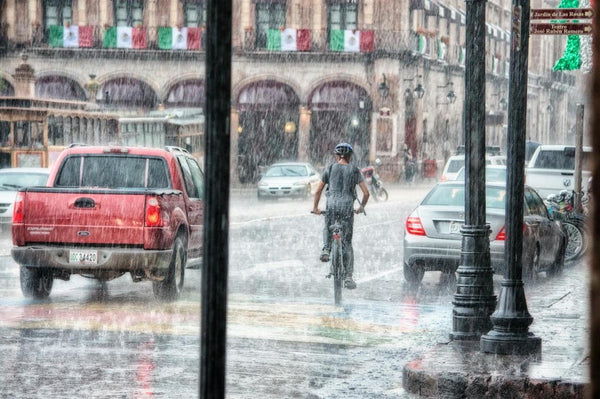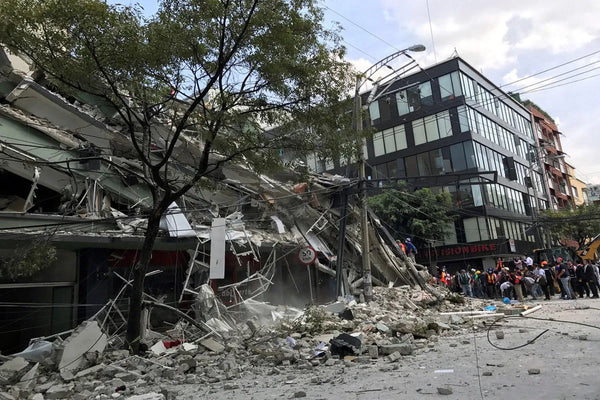Recently, the Bureau of Fire Protection reported an increase in fire incidents in the Philippines, with 3,044 recorded between January 1 and March 1. Most of them were house fires.
House fires not only bring financial hardships and physical injuries, but they also lead to deep emotional wounds that take time to heal. After all, it’s hard to see your dream house burning and losing cherished possessions.
Fortunately, avoiding or minimizing the damage with a house fire readiness plan is possible. Check out this guide to learn how to respond before, during, and after a house fire.
Related articles: What to Do Before, During, and After a Typhoon
What to Do Before, During, and After Flood?
What to Do Before, During, and After an Earthquake?
What Are Most House Fires Caused By?

Home fires are unexpected and can quickly spiral out of control. However, by understanding the common causes of most house fires, you can prevent the disaster to a great extent. So, keep reading to know the common reasons behind home fires:
Cooking: Cooking is one of the major causes of house fires. When cooking oil becomes excessively hot, it starts smoking and bursts into flames. So, make sure you stay in the kitchen while you’re cooking with a heat source. Act immediately as soon as you see wisps of smoke to prevent the fire from igniting.
Faulty electrical wiring: Most fires are caused by defective electrical wiring. These include excessive use of extension cords, faulty or poor-quality electrical wires, or torn wires. Many people try to set up electrical connections by themselves instead of hiring a professional electrician. They often end up installing or connecting the wires incorrectly, which can lead to disastrous fires.
Leaving ovens unattended: While multitasking can save time and effort for homemakers, leaving heating equipment like ovens and stoves unattended can cause fires. Things such as hand towels and oven mitts placed near such equipment can quickly catch fire, thus increasing the risk.
Children playing with fire: Kids show curiosity when they see someone lighting up lighters, torches, or matches. So, they try to copy what you’re doing, which could lead to serious home fires.
Unattended lit candles: Filipinos experience frequent power outages during summer, and candles are the cheapest way to light up homes. However, candles can spark fires if left unattended or put in the wrong places, like near curtains or wallpapers.
Smoking: Carelessly thrown cigarette butts or embers may land on combustible materials, causing a home fire.
Some other possible causes of home fires include barbecues, dryers, improperly stored flammable liquids, lighting, etc.
What to Do Before House Fire?
Prevention is better than cure. So, it’s wise to prepare your home to avoid catching fire or respond to the disaster as fast as possible. Here are the tips you need to follow for house fire preparedness:
- Create a fire escape plan for your home and share it with every household member.
- Install smoke alarms throughout your home. Smoke detectors alert you as soon as they detect smoke in your home, and you get enough time to escape. You can choose smart smoke detectors that alert you and the fire department of a potential file, even if you’re away from home.
- Make sure you have quickly accessible fire extinguishers in your residence. Ideally, it would be best if you place them near the exit. If you consider placing them in a cabinet, put a visible sign that explains where the fire extinguisher is located and let everyone in the family know about it.
- Unplug electrical devices that are not in use. You may be surprised to know that electrical devices like TVs, phones, and computers still consume energy if they are plugged in but turned off. This causes the excessive current to flow through unplugged, turned-off devices.
- Regularly inspect your home’s electrical and heating systems for any damage like frayed cords, cracks, etc.
- Tenants should examine their evacuation plan with their landlord and neighbors.
- If you live in a highrise, be informed about how to evacuate the building during a fire. Avoid elevators and use stairs only.
- Keep inflammable items, such as matches and lighters, out of children's reach. Also, educate children about the dangers of fire.
- Conduct fire practice drills with your family to prepare for home fires. Every household member should learn STOP, DROP, and ROLL if their clothes catch fire.
- Make a personalized emergency kit containing all items addressing the needs of every family member.
What to Do During House Fire?

- Extinguish the fire thoroughly if possible. If not, run for safety and help.
- Shut off gas valves immediately.
- Turn on the lights in all areas of your home to make things more visible through the smoke or darkness.
- Move furniture away from sliding glass doors and windows to prevent ignition from the fire’s radiant heat.
- Fire produces smoke and dangerous gases, which may cause unconsciousness. To escape the fire and make your way through fires, crawl beneath the smoke and avoid going through hot doors. Staying low will protect you from inhaling smoke or poisonous gases.
- If smoke or heat blocks your escape routes, stay inside the room with doors closed. Doors may not prevent the smoke, but they can certainly block the fire's way to your room.
- Once you’re outside, run away from the house and look for a safe place. Call someone for help immediately. Roofs, sidings, and other parts of the home may catch fire and fall around the building, so run away from the building to stay safe.
- If you’re trapped inside, cover the cracks around the door with anything. If you can find something wet, use that. Then, call 911 immediately if you can access a phone.
What to Do After House Fire?
A house fire may leave homeowners struggling with loss and grief while they struggle with multiple tasks to get back to normal life. But there is no option other than moving on.
Here are important tips that may help you get back on your feet after the fire:
- If your home is damaged and requires you to be displaced, the first step is to find a safe place to stay.
- Contact your friends and family who might be worried about your well-being.
- If you occupy a rented property, inform your landlord about the incident.
- Contact your insurance agent to start a claim as soon as possible. This will help reduce financial hardships that may come after the loss due to fire.
- As an owner, you are responsible for protecting your home from further damage, such as trespassing and bad weather.
- Take your pets to your veterinarian to get them inspected and treated for burns or smoke in the lungs.
- Take pictures of the damaged property to document what should be replaced, removed, or restored.
- Get a copy of the fire report from your local fire department. This is an essential document for claiming property insurance.
- A home fire can be mentally traumatic to you and your family members. So, take care of your mental health and be patient when working through the stress caused by the fire.
How to Avoid House Fires?
Why take a chance and put your home at risk? Even though home fires are unpredictable, you can take certain precautionary measures to prevent the possibility of the incident. Here is what you can do:
- Don’t leave your kitchen unattended when you’re cooking.
- Inspect your heating sources regularly. Professionals can also help get this done annually.
- Store flammable items like household cleaners and shaving cream properly to avoid fires.
- Make sure every single wire in your home is well-maintained. Replace damaged wires as soon as possible, and avoid wires in any area that could potentially catch fire.
- Be careful with open flames like candles.
- Every family member should know the location of the fire extinguisher, and keep a fire extinguisher or blanket handy at all times.
- Use surge protectors to keep extra current out and reduce the risk of home fires.
Take these and all other necessary precautions to protect your home and family from fires.
Home Battery Backup for Emergency Cases
Fire may disrupt your home's power supply, which is necessary for a speedy recovery. In this case, you can rely on emergency battery backup power that keeps your lights on and powers your cooling and heating systems. It also helps keep your communication devices turned on so you can stay connected with concerned people.

Just make sure you buy a reliable home battery backup for emergency cases. For instance, the BLUETTI AC300 + B300 home battery backup can support high-power devices like air conditioners, mowers, fridges, and more. Due to its modular design, AC300 can accept external battery packs for an increased capacity of up to 12,288Wh. You can charge the battery via a wall outlet, car, solar panels, lead-acid battery, or generator.

You can also buy the BLUETTI AC500 + B300S home battery backup, which boasts 5,000W rated power and an expandable capacity from 3,072Wh to 18,432Wh. This modular solar power system is designed to help you deal with power outages and have access to unlimited energy anytime and anywhere.
Final Thoughts
There is no place like home. Your home is your personalized sanctuary that defines you, your family, and your lifestyle. A fire can destroy your personal heaven where you feel most comfortable and snuggly. Although disasters like home fires are unpredictable and unexpected, it’s best to be prepared to deal with them. Hopefully, this guide will give you the necessary guidance and help.





